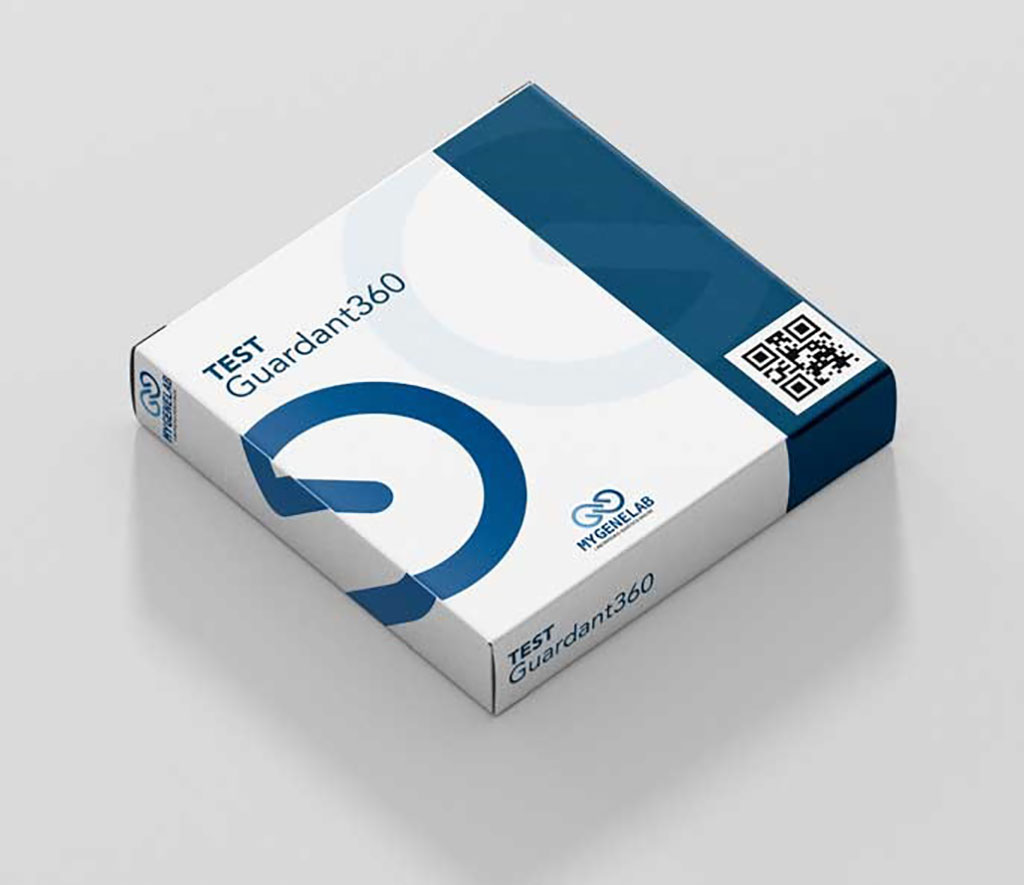Circulating Tumor DNA Analysis Directs Therapy in Breast Cancer
By LabMedica International staff writers
Posted on 22 Sep 2020
Multiple tumor mutations are potentially targetable for advanced breast cancer treatment. Some of these mutations are common, such as activating PIK3CA mutations that are targetable with PI3K inhibitors. Posted on 22 Sep 2020
Mutation analysis can be obtained from genomic analysis of tissue-based biopsies from metastatic disease; however, this process is invasive and potentially limited by tumor heterogeneity and temporal tumor evolution. Circulating tumor DNA (ctDNA) testing might provide a current assessment of the genomic profile of advanced cancer, without the need to repeat tumor biopsy.

Image: The Guardant360 tests 74 genes in a blood sample to identify the presence of spot tumor mutations, reordering, insertions and deletions (indels), as well as microsatellite instability (Photo courtesy of MygeneLab).
Medical Oncologists at the Institute of Cancer Research (London, UK) and their colleagues at The Royal Marsden Hospital (Sutton, UK) analyzed blood samples from more than 1,000 women with breast cancer that had recurred after treatment or spread to another part of the body. The aim was to see whether the blood test could help improve treatment for the significant proportion of women whose breast cancer is caused by one of a variety of rarer mutations, as opposed to better-known defects like BRCA mutations.
The scientists performed ctDNA testing that was done with two technologies. Digital droplet PCR was done at a central laboratory prospectively in all patients, for mutations in PIK3CA, ESR1, HER2, and AKT1. From July 10, 2018, after recruitment of 680 patients, prospective testing also included error-corrected targeted sequencing with Guardant360 (Guardant Health, Redwood City, CA, USA) for a panel of 73 genes including PIK3CA, ESR1, HER2, AKT1, PTEN, and TP53, with retrospective sequencing for previously enrolled patients.
The investigators reported that between December 21, 2016, and April 26, 2019, 1,051 patients registered for the study, with ctDNA results available for 1,034 patients. Agreement between ctDNA digital PCR and targeted sequencing was 96%–99%. Sensitivity of digital PCR ctDNA testing for mutations identified in tissue sequencing was 93% overall and 98% with contemporaneous biopsies. In all cohorts, combined median follow-up was 14.4 months.
Nicholas C Turner, MA MRCP PhD, a Consultant Medical Oncologist, said, “Using a liquid biopsy could be particularly important for patients with advanced breast cancer, to help select the most appropriate treatment. Tests that detect tumor DNA in the blood have huge potential and could transform how doctors select targeted therapies for patients with advanced cancer. Our study shows that these liquid biopsies can pick up the mutations that drive a patient's breast cancer, and can successfully match patients with the best available precision medicine for their cancer.”
The authors concluded that ctDNA testing offers accurate, rapid genotyping that enables the selection of mutation-directed therapies for patients with breast cancer, with sufficient clinical validity for adoption into routine clinical practice. The results demonstrated clinically relevant activity of targeted therapies against rare HER2 and AKT1 mutations, confirming these mutations could be targetable for breast cancer treatment. The study was published on September 10, 2020 in the journal The Lancet Oncology.
Related Links:
Institute of Cancer Research
The Royal Marsden Hospital
Guardant Health










 Analyzer.jpg)



